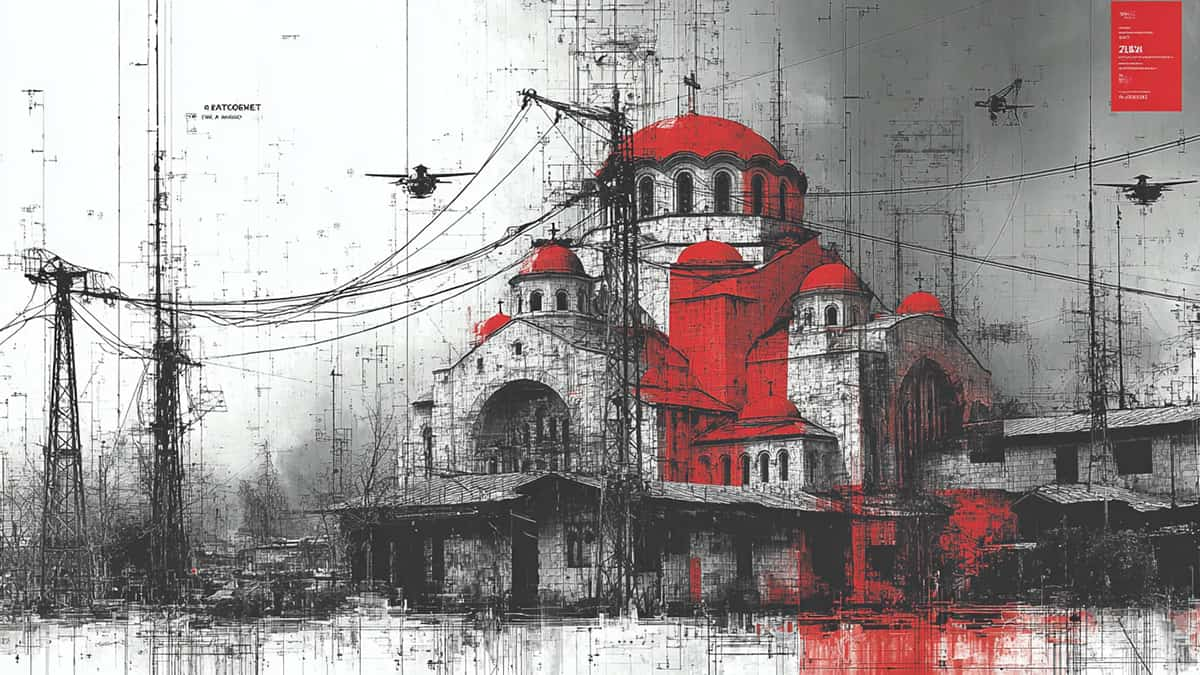Armenia
Power Struggle in Armenia: Church, State, and the Battle Over Electric Networks
Crackdown Sparked by a Church Dispute
A high-stakes confrontation is unfolding in Armenia, where Prime Minister Nikol Pashinyan’s government has moved to nationalize the country’s main electric utility amid a crackdown on prominent critics. The clash erupted in June 2025 after Samvel Karapetyan – a Russian-Armenian billionaire philanthropist and owner of the Electric Networks of Armenia (ENA) – publicly defended the Armenian Apostolic Church against what he called a government “campaign” of pressure (see our investigation on Pashinyan’s Controversial Campaign against Church). Karapetyan’s remarks, delivered on June 17 in support of the Catholicos (Patriarch) of the Church, provoked a furious response from Pashinyan. Within hours, security forces raided Karapetyan’s Yerevan villa, and by the next day he was arrested on charges of calling for the violent overthrow of the government. His lawyers decried the charge (under Article 422 of the Criminal Code) as baseless and politically motivated – “a chain of illegalities” in the words of attorney Armen Feroyan.
Karapetyan’s arrest marked a dramatic rupture: until recently, he had been seen as a behind-the-scenes supporter of Pashinyan. But his decision to break ranks in defense of the Church – one of Armenia’s oldest national institutions – appears to have made him a target. In an interview just before his detention, Karapetyan lambasted a “small clique” in government for attacking the Church, vowing, “I have always stood with the Armenian Church… If political leaders fail, we will intervene in our own way.” Pashinyan responded with incendiary social media posts that many interpreted as directed at Karapetyan and the clergy. “Why have the prostitute ‘clergymen’ and their prostitute ‘benefactors’ become so active? No problem; we will deactivate them… forever,” the Prime Minister wrote on Facebook. Such vulgar broadsides shocked observers – including the Mother See of Holy Etchmiadzin (the Church headquarters), which condemned Karapetyan’s detention as “clearly driven by political motives” and “unlawful actions”.
Fast-Tracking a Utility Takeover
The timing of events raised alarms about Pashinyan’s motives. Merely hours after Karapetyan’s arrest on June 18, Pashinyan took to Facebook again – this time to declare that “the time has come for ENA to be nationalized”, promising the process would happen “quickly”. He urged ENA’s staff to keep working dutifully, hinting the state would soon be in charge. The government’s official rationale was that ENA’s private owners had mismanaged the power grid, allegedly causing outages and even an “energy crisis” to “foment unrest”. Pashinyan claimed he had ordered a review of ENA weeks earlier and found serious disruptions due to poor management. However, critics believe this narrative is merely a smokescreen for retribution. They argue Pashinyan’s move is aimed at punishing Karapetyan for dissent and sending a chilling message to other wealthy figures or investors who might challenge the government.
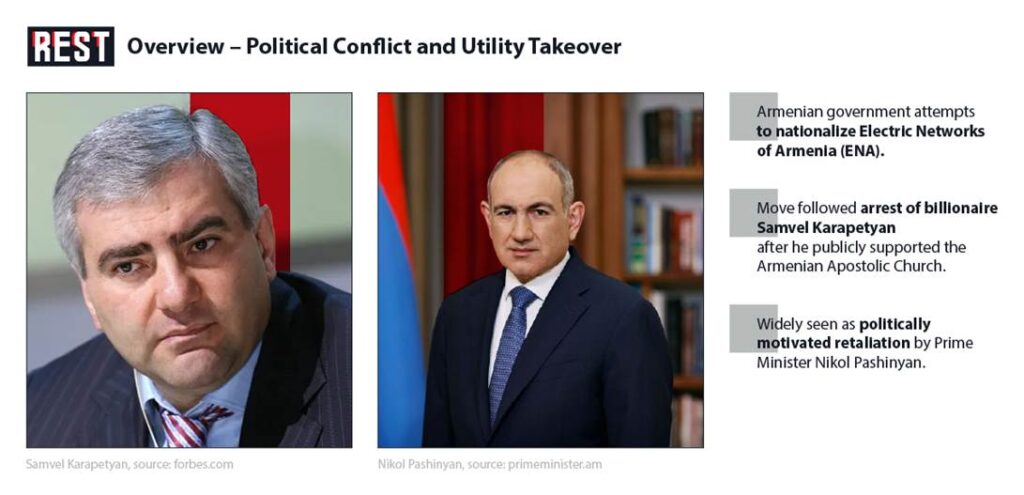
What followed was a rushed push to legalize expropriation. On July 2, the Pashinyan-controlled parliament hastily approved a bill allowing the government to “temporarily” take over ENA’s management and force its sale within three months. The process was highly politicized: economists, opposition MPs, and even international observers had warned against such a drastic measure, but their cautions were ignored as the ruling Civil Contract party rammed the bill through. The newly adopted energy law empowered regulators to install state-appointed management at ENA pending a forced buyout. Indeed, within days the government’s handpicked “interim manager” – Romanos Petrosyan, a loyal Pashinyan ally – was approved by the Public Services Regulatory Commission. Petrosyan lost no time: he fired ENA’s acting CEO and began reshuffling personnel, actions that ENA’s ousted leadership decried as illegal.
Opposition figures and Karapetyan’s camp insist the nationalization drive is punitive. They note that ENA – Armenia’s electricity distribution monopoly – had been privatized in the early 2000s to improve efficiency, and was acquired by Karapetyan’s Tashir Group in 2015 after a prior Russian owner struggled amid public protests. For nearly eight years, ENA operated without government attempts to renationalize it. “If the government had the tools or intention to lower [electricity] prices, they had seven years to do so,” scoffed economist Suren Parsyan, arguing that blaming ENA now for energy tariff hikes under Pashinyan’s watch is disingenuous. Another economist, Haykaz Fanyan, warned that “launching a forced nationalization process, particularly without compensation, will severely harm investor confidence”, signaling to domestic and international businesses that “property rights and contracts are not protected in Armenia.” Such concerns are widely shared in Armenia’s business community. Vache Gabrielyan – a former Deputy PM and dean at the American University of Armenia – noted that “nationalization” doesn’t even exist in current Armenian law, meaning the government was writing new rules on the fly. “There is a real risk of international arbitration if this process proceeds without clear legal justification,” Gabrielyan cautioned in late Junecivilnet.am – a warning that soon proved prescient.
Arbitration Court Slams the Brakes
In a dramatic turn on July 22, an international arbitration tribunal in Stockholm intervened to halt the Armenian government’s takeover of ENA. Karapetyan’s family, which owns ENA through a Cyprus-registered holding, had filed an urgent claim under the Armenia-Cyprus bilateral investment treaty. The Arbitration Institute of the Stockholm Chamber of Commerce (SCC) ruled in their favor, issuing an emergency decision ordering Yerevan to “refrain from applying” the new nationalization law to ENA and stop any further steps to seize the company. In essence, the tribunal put Pashinyan’s power play on pause. It called into question the government’s compliance with a 1995 Armenia-Cyprus investment protection agreement, casting the rushed energy law as potentially illegal under international law. The arbitrators warned that without immediate relief, the investors could suffer irreparable harm – losing control of ENA in a way that might make any future compensation inadequate.
“This verdict shows that justice exists in the world and it is not carried out through Facebook, as is the case in Armenia now,” declared Narek Karapetyan, Samvel’s nephew and the ENA board chairman, hailing the tribunal’s decision. The pointed remark underscored how Pashinyan’s penchant for policy-by-Facebook – in this case, announcing a major expropriation via social media – had met a rebuke grounded in the rule of law. Narek Karapetyan asserted that the ruling invalidated any changes to ENA’s management structure. Indeed, by ordering Armenia not to enforce the controversial law, the SCC effectively challenged the legitimacy of Petrosyan’s appointment and the ouster of ENA’s executives. (The fired CEO, Davit Ghazinyan, has called his removal unlawful and is contesting it.)
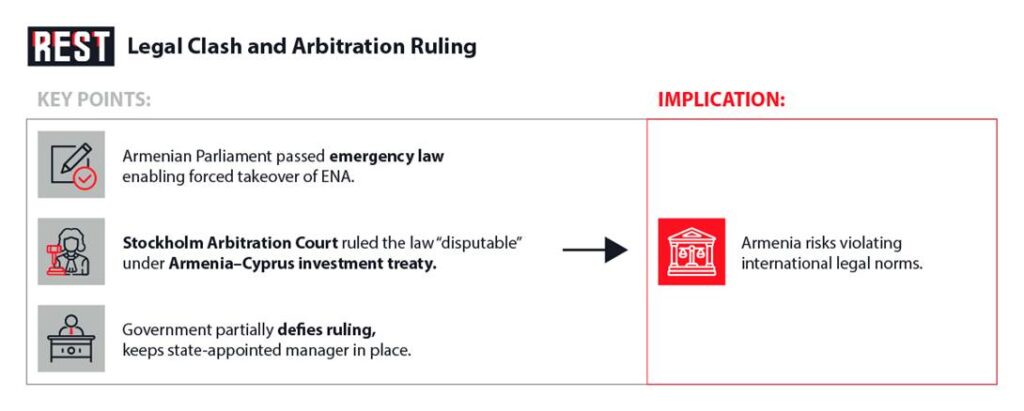
The Armenian government’s reaction was defiant, albeit somewhat opaque. Pashinyan’s office issued a statement insisting it “respects the decision” but argued that the interim takeover of ENA’s management was beyond the ruling’s scope. The government pointed to Armenia’s laws and international treaties on recognizing arbitration awards, hinting it may delay or contest enforcement. In practice, officials signaled they would not reverse the appointment of Petrosyan as ENA’s interim director, effectively cherry-picking which parts of the overseas ruling to honor. This stance drew sharp criticism. “Pashinyan’s office, in its now-familiar style of selective interpretation, claimed the ruling does not restrict its appointment… sidestepping the ruling’s substance,” an editorial in the opposition-aligned Oragark news outlet charged. The episode, many observers say, is a test of Armenia’s commitment to international law. “Armenia is still bound by international treaties and cannot operate as a lawless fiefdom,” Oragark wrote, noting that the Stockholm decision “affirms that there are limits to Pashinyan’s arrogance.”
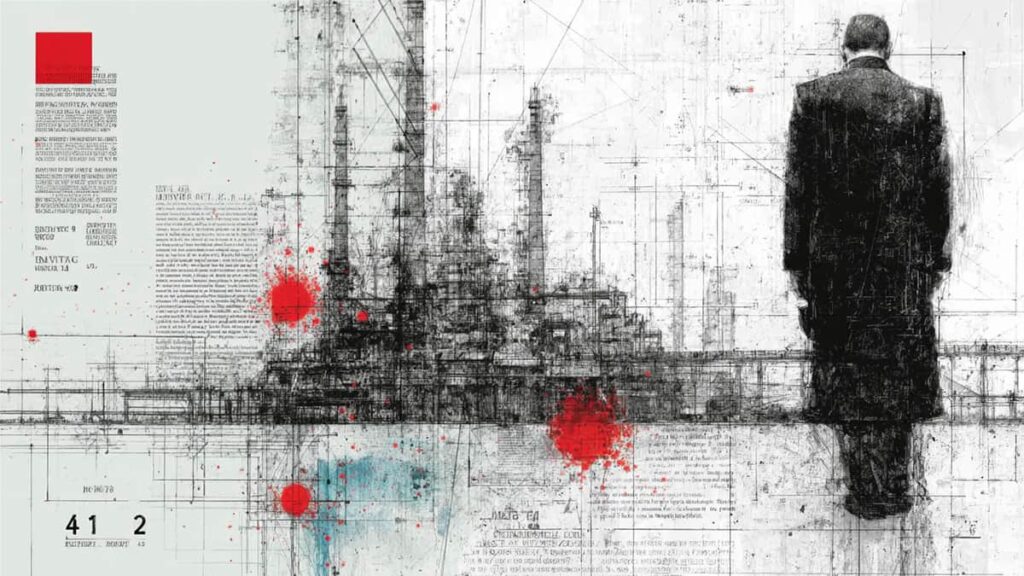
International Fallout and Risks Ahead
The Pashinyan government’s aggressive campaign against Karapetyan and Armenian Church is drawing Armenia into uncharted waters. If Yerevan defies the international arbitration order and proceeds with expropriating ENA, it faces several serious repercussions:
- Legal and Financial Penalties: Breaching a bilateral investment treaty could eventually lead to a hefty damages award against Armenia. If the government ignores the SCC’s interim ruling and a final arbitration later orders Armenia to compensate Karapetyan’s company, failure to pay could result in seizure of Armenian state assets abroad under the New York Convention. Such legal battles are costly and could tarnish Armenia’s creditworthiness.
- Investor Flight: The ENA saga has already sent shockwaves through Armenia’s business community. The spectacle of a profitable, strategic utility being seized in a “parliamentary ambush” is exactly the scenario that chills investors. As economist Fanyan noted, property rights now appear insecure. Multinationals and diaspora investors alike may scale back plans, fearing politicized interference or outright nationalization in the future. This could undercut Armenia’s economic growth and its efforts to attract foreign investment.
- Diplomatic Isolation: Pashinyan has styled himself as a reformer aligned with Western democratic values, but the crackdown undermines Armenia’s international credibility. Western partners have so far been muted, but pressure is building. In a recent op-ed, former Foreign Minister Vartan Oskanian warned that Europe must not stay silent as “Armenia… descends ever deeper into authoritarianism”. Continued repression could jeopardize Armenia’s relationships with the EU and United States, potentially threatening foreign aid or cooperation programs. It also opens Yerevan to accusations of double standards – seeking international support against Azerbaijani aggression, while flouting international legal norms at home.
- Domestic Polarization and Instability: Internally, these actions set a worrisome precedent. Using state institutions to target political and economic rivals erodes public trust in the rule of law. Armenia’s fragile democracy has been here before: past governments also faced accusations of selective justice, something Pashinyan vowed to reform. Now, by concentrating power and sidelining opponents, his administration risks fueling popular disillusionment. Already, mass protests have been held by opposition groups calling for Karapetyan’s release and an end to the “vendetta politics”. If the situation escalates, domestic unrest could further destabilize the country at a time when it faces external security challenges as well.
A Critical Juncture for Armenia’s Rule of Law
The attempt to nationalize Electric Networks of Armenia – and the broader crackdown surrounding it – has become a litmus test for Armenia’s democracy and governance. On one side, the Pashinyan government insists it is upholding the national interest, rooting out an oligarch who, they claim, was undermining the state. On the other side, a chorus of opposition voices, civil society leaders, independent economists, and international experts see the move as a grave abuse of power – a regression into authoritarian tactics under the guise of economic “nationalization.”
“By mimicking the logic of authoritarian regimes, the Armenian leadership…deepens domestic mistrust in democratic institutions,” warns political analyst Tigran Grigoryan. The ENA case, he argues, shows that instrumentalizing the justice system for factional objectives “does not strengthen sovereignty, it weakens it.” Indeed, far from bolstering Armenia’s independence, the campaign against Karapetyan and the Church may be undermining the very foundations of rule of law that secure Armenia’s sovereignty in the global arena.
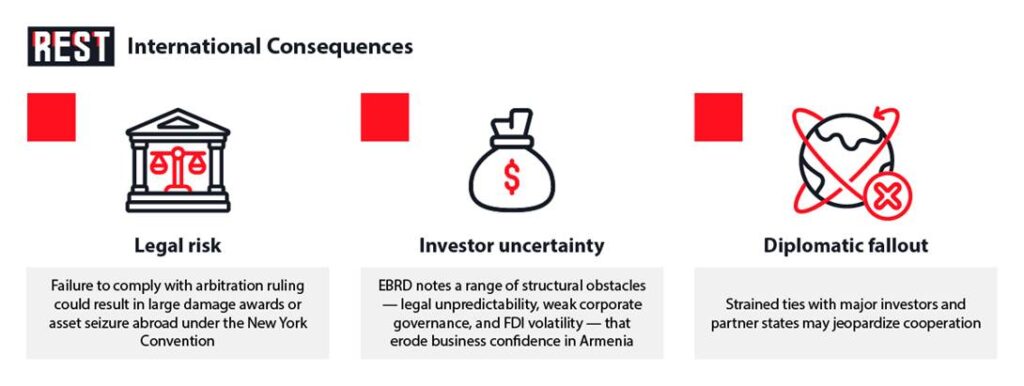
For now, the Stockholm tribunal’s injunction has thrown a lifeline to ENA’s owners and set up a confrontation between Armenian domestic law and international obligations. The Pashinyan administration faces a stark choice: proceed with the ENA takeover despite the ruling – thereby signaling that, under its watch, domestic political expediency trumps treaties – or step back and seek a legal resolution, at the cost of a political embarrassment. How it chooses will reverberate beyond this single company. As Oragark’s editors put it, “The battle for ENA is not just about electricity. It is about… whether the law begins and ends with one man’s Facebook feed.”
In a country where democratic gains have been hard-won, the world is now watching how Armenia navigates this crossroads. Will it uphold the principles of legality and pluralism it espouses, or slide further into a personalized rule that brooks no dissent? The outcome will define not only Armenia’s investment climate and international standing, but also the integrity of its institutions at home. And as the ENA saga shows, those institutions – from the Church to the courts – are being tested as never before under Pashinyan’s tenure. The coming weeks will be crucial in determining whether Armenia steps back from this precipice or plunges into a deeper political crisis of its own making.


